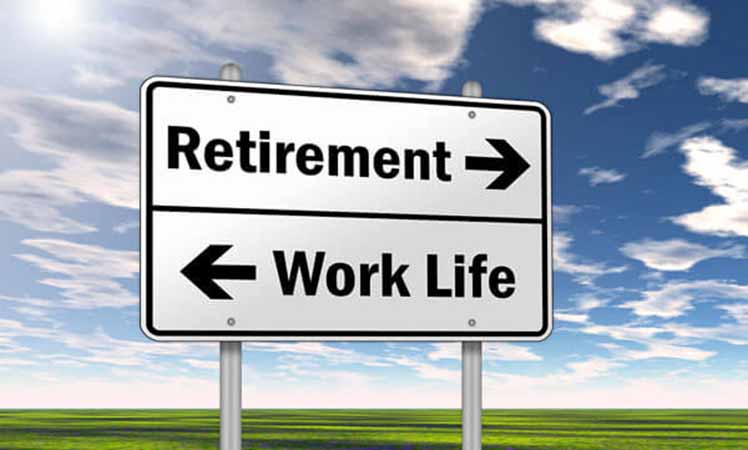Days of Change and the Concept of “Now”
Originally posted on October 1, 2015
There are special “transition” days in all of our lives. Before, we’re one person. After a transition day, we are someone else. My latest transition came when I decided to retire, and to retire to Thailand.
There are days which we will always remember; days like September 11th, the day John Kennedy died, the day John Lennon died, or the more mundane like the day the Seahawks won the Super Bowl, or the day the Seahawks lost the Super Bowl. These are events that make for a change in our lives, not only for us but for all the people around us.
Today though, I am referring to something more personal.
My “days of change” include the day my Dad shocked me by saying that our family could afford to send their first family member, me, to college; the day I proved he made a good decision and I graduated; the day the Peace Corps invited me to train to be a volunteer in Thailand; the day Pikun and I went down to the Chiang Mai City Hall and registered our marriage; the days my children were born; and the day I decided to retire.
Many of you have had similar experiences and you know that the day after transition you woke up as somebody else, somebody new. For me, I became a college student, then a college graduate, a Peace Corps volunteer, a husband, and then a father.
But, not so long ago, during my last metamorphosis, I was quite surprised to realize that my “retirement” transition-day would usher in a sea-change which would become probably my biggest transformation.
Day 1 after transition: I rolled out of bed at the same time as I normally do. When my feet hit the floor I realized, “I just quit work yesterday.” so I rolled back into bed. That day I began doing what I wanted to do, not what I had to do. “And that has made all the difference.”
I recently read a quote by David Suzuki, the environmentalist and TV host, which does a good job of expressing the feelings I experienced on that first day. “(Now) I can say exactly what I think. I don’t have to worry about getting a raise or a promotion. I appreciate the blossoms, and I used to be so driven that I never paid attention to those things. It was always, ‘I’ve gotta finish this project.’ ”
Today my “project” was to go feed my rabbits and birds, water my okra crop, and check on my bantam hen as she sits on her 9 eggs. Then I cut down a huge bamboo which was about to lean on my roof. I got stung by a wasp in the process. Later I sat down to write this blog post while listening to opera on YouTube.
*****
I started thinking along the lines of how I have changed in retirement when I was approached by email by an organization who was putting together a seminar to encourage “conversation.”
They feel that with all the different and modern ways of communicating, sound bites, and cell phones, and Skyping, and texting, and tweeting, and Facebooking, etc. that people have lost the art, and the ability, to simply talk with each other.
So to encourage this lost art they put 16 strangers together in a room, give them a topic to discuss, and see where it goes from there. They do this in various cities around the world and the next one would be in Bangkok. The topic that the Bangkok-16 was to be given was “Now”.
They wrote to me and said that they were contacting “folks in renewables, yoga, tech, media, (and) older people? What would they (older people) think about our theme?”, she wanted to know. So she did a Google search on the web for older dudes in Thailand, and found me and asked me to join the group.
First I was taken aback by someone referring to me as “older people”. But in keeping with the theme of this post of transitioning into retirement I guess I have to admit that if one is retiring then one is most likely one of the “older people”.
This brings me to the concept of “Now”.
It turns out that my latest transition, not only to being retired but also to being “older people”, has a big influence on how I deal with the concept of “Now”. I am sorry that I had to decline the offer of being one of the Bangkok-16 to discuss this but it would mean that I would have to travel to Bangkok, and as readers of this blog know, that is something I rarely do. But I did share with them my feelings about “Now”. This is from my email reply:
You may or may not have thought of this, but the idea of “Now” is even more important to older, retired people than one would think, and we are even more aware than the younger generation that the past is just memory (Shakespeare would say “prologue”); the future doesn’t exist yet, and for us oldies it may never exist. I now understand the myna birds on Aldous Huxley’s Island when they chanted, “Here and now. Here and now.” Now is all we got, and that is abundantly clear to “older people”.
I have some experience in dealing with “Now”. For over 30 years I have practiced mindfulness, in meditation and in my daily life. Nowadays “mindfulness” is being talked and written about by all the cool people. Here is a pretty good web definition of “mindfulness”:
Mindfulness is a state of active, open attention on the present. When you’re mindful, you observe your thoughts and feelings from a distance, without judging them good or bad. Instead of letting your life pass you by, mindfulness means living in the moment and awakening to experience.
So mindfulness is living in the “now”. But our lives can throw some serious roadblocks at us that can make being mindful and understanding “now” very difficult.
When we are at school, or working, or out in the social world, or raising a family, or saving for retirement, we tend to do stuff “now” with the object of making for a better future. We do things today so that in the future we will get that degree, or that pay raise, or that life partner, or attractive and brilliant children, or that retirement beach home. That gives us little time to look around and see what we have now, let alone to smell those proverbial roses.
We think of the past, about “roads not taken”, about stuff we should have done, and stuff we shouldn’t have done. Were our decisions good ones? Did we make the correct choices; in our college major, our job, our spouse, how we brought up our kids? Our “now” is often filled with regrets about these past choices?
I must admit that even today I still have regrets. But in the immortal words of the philosopher Sinatra: “Regrets, I’ve had a few/But then again, too few to mention.” Sinatra was about my age when he sang those words.
Thanks to my retirement I now understand what Sinatra meant. I wake up thinking about what I am going to do “today”. I rarely think about my foibles of yesterday, and unless I have a doctor’s appointment, or have to show up at the Immigration Department, or have a golf date, “tomorrow” doesn’t often enter my mind.
*****
I am doing pretty well living in the “now” in my retirement. But I’m not completely there yet. I am still worried about things like whether my okra plants will produce a good crop, or what to do about that wasps’ nest in my bamboo grove, or if my bantam hen’s 9 eggs will hatch into healthy little bantam chicks. Mamma hen doesn’t seem worried though, so I’ll just try to be more like her and live for today.





